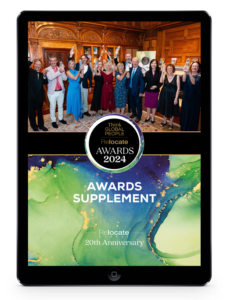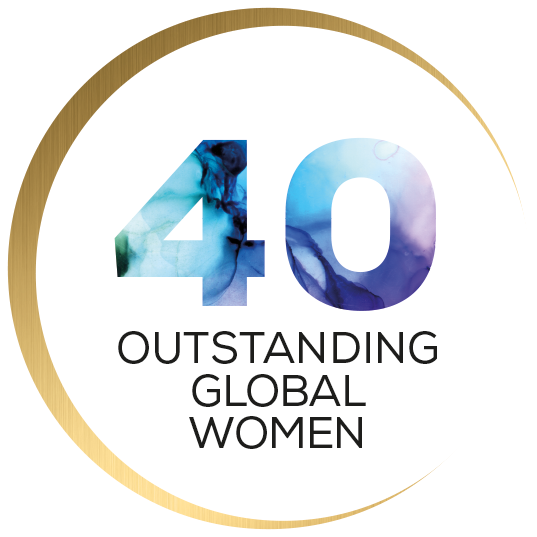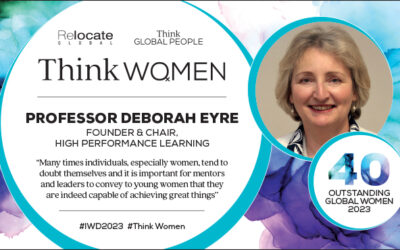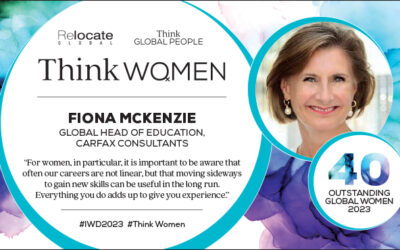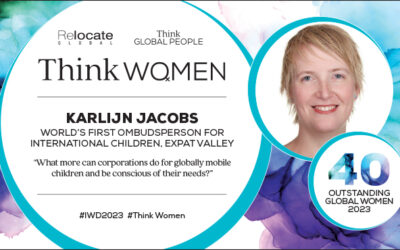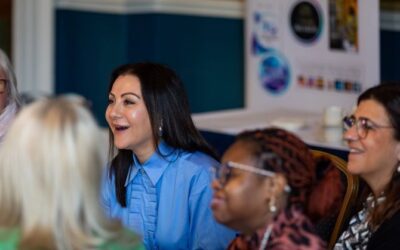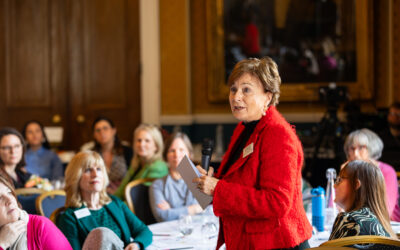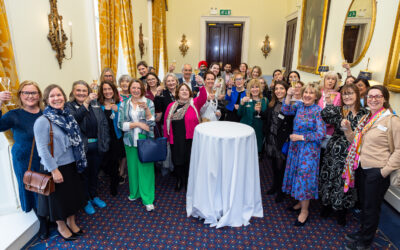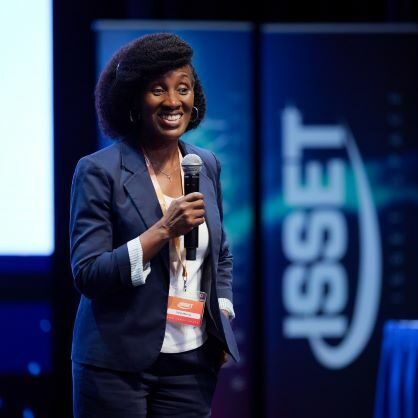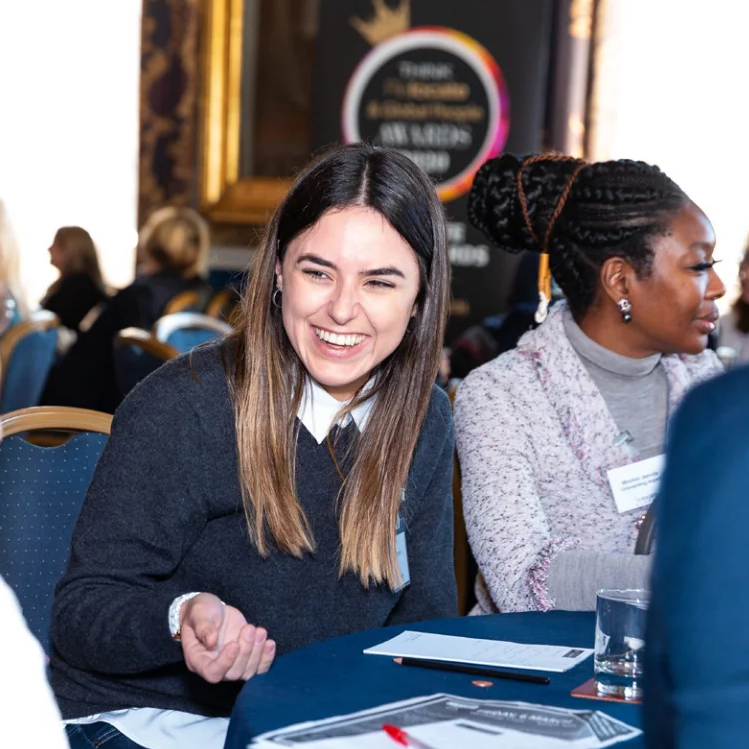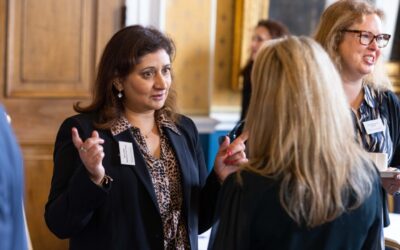Think Women
Sheryll Young | 40 Outstanding Global Women 2023
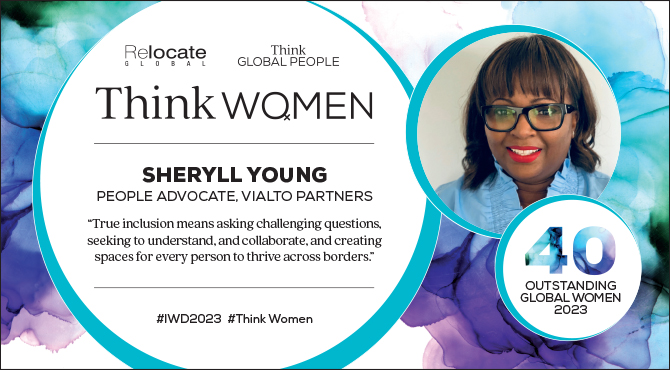
Creating true inclusion
Sheryll Young is a passionate advocate for inclusive talent mobility management. Her decade-long career in global mobility started in an internal role at PwC. Today, she holds a client-facing role at Vialto Partners, where she advises multinational corporations in a fast-changing world. Here she collaborates with stakeholders to build talent mobility strategies that attract and retain talent from around the globe.
Raised in Jamaica until she was an adult, Sheryll migrated to Canada and now calls Toronto, home. It’s from her Ontario base that Sheryll started her career in mobility a decade ago as a global mobility administrator. Passionate, informed and dedicated to her purpose, she is an active member of and influential leader in the global mobility community.
As well as her role helping positively to shape people strategies in organisations and individuals’ lives at Vialto Partners, Sheryll has a number of voluntary roles where she shares her knowledge. These include on the DEI committee at the Canadian Employee Relocation Council (CERC), as vice-chair of the Tax Forum and as a member of the Public Policy and Immigration working groups with the Worldwide Employee Relocation Council (WERC). Sheryll also is an ESG champion at Vialto Partners and an active mentor for black Canadians as they launch their careers after university and college.
Sheryll’s finely honed perspective on global mobility has been forged by increasingly senior roles across several sectors: engineering, procurement and construction management (EPCM), utilities, ecommerce and consulting. Sheryll’s continuous drive to shape GM strategy is informed by her knowledge and ability to provide invaluable market insights, solutions and thought leadership in a rapidly evolving mobility ecosystem.
“I soaked up as much learning as I could at the start of my career about vendor management, establishing and building relationships,” says Sheryll. This early foundation in strategic talent management and mobility raised her awareness of the significance of valuing individual assignees with their unique needs, circumstances and perspectives. “I still remember some of the names of individuals whose mobility journey I played a role in and which country they went to from the start of my career.”
Having an advisory role and the opportunity of a short-term assignment as an HR business partner in Abu Dhabi was equally life-altering. “Facilitating those conversations” recalls Sheryll “and having those insightful and unique conversations with the assignees really brought home the sense of what I was doing as a career and why.” These insights remain fundamental to her consulting approach today.
“True inclusion means asking challenging questions, seeking to understand, and collaborate, and creating spaces for every person to thrive across borders.”
Sheryll Young, Strategic Global Mobility Management Consultant, VIALTO PARTNERS
DEI – a shared responsibility
Sheryll is unwavering in her belief that Global Mobility is a core component of inclusive talent management where every individual should be afforded the benefit of a mobility experience. This is especially true now with environmental, social and governance frameworks front and centre of corporate agendas. Recognising that mobility functions alone cannot be responsible for inclusive talent management as part of the ESG agenda, Sheryll is disconcerted by what she sees as a “de-prioritisation of DEI conversations and initiatives” in businesses. “So now we’re left wondering who fundamentally owns the conversation? We need to have – at an enterprise-wide level – conversations around what we want to stand for, how we address hiring diversely and create an inclusive framework in which mobility operates sustainably.”
This means removing barriers – seen and unseen – for marginalised communities and recognising that individuals have myriad dimensions, experiences influenced by geopolitical factors, backgrounds and demographics. It goes beyond a simple acknowledging of protected characteristics and instead embraces a more adaptable and empathetic view of each individual and how their surroundings and environs have shaped them. This fosters an environment – even in a mobility experience – where people are heard, can develop and enable the growth of others through cross-cultural learning between home and host location teams.
“We need to bring those types of learnings deeper within the mobility field and deeper within human capital,” says Sheryll. “It is crucial in designing mobility programmes. How are we considering global and local nuances as well as individual backgrounds and goals in order to foster a truly inclusive environment? Despite the challenge of employers having a medium to large global footprint, I think creating spaces where individuals know they are free of judgement, of someone’s bias or the expectations set on them, and they are understood and heard, is key.
“To actually understand someone, it requires both actively listening and engaging with what they are saying. By developing different perspectives and challenging our own assumptions and perspectives, we give that space for belonging. I think we have an opportunity to do that.
“We are starting to see steady climate migration as the impact of the climate crisis is at a tipping point. It challenges us to think globally about what mobility looks like when we think of the individuals who are being displaced and fleeing into various jurisdictions to live. What are their experiences? How can we learn and elevate programmes to support these geopolitical and other external impacts that are forcing talent mobility in a different way?”
Balancing business drivers and employee experience
It’s at this intersection that Sheryll sees her role today and why she is such a determined advocate for collaboration across the entire global mobility value chain. While many companies today do see global mobility’s strategic role, the challenge is how to deliver on this.
For Sheryll in her client-facing role at Vialto Partners, breaking down silos and promoting open stakeholder – internal and external – communication to advise clients on their global mobility strategy operations, service delivery models and process improvement is critical. This results in a better experience for the employees, as well as cost savings and improved outcomes for companies. “It goes beyond just streamlining processes and saving money,” says Sheryll. “Removing silos and fostering collaboration allows for a deeper understanding of each stakeholder’s role and challenges in the global mobility landscape and the world around us.”
Balancing employee and employer needs is a perennial sticking point, but Sheryll is a firm believer that they can be matched by looking from different perspectives, collaborating, and capturing and looking at the right data. “In global mobility, our focus is finding the balance between the business drivers and the employee experience.” Involvement in communities is fundamental to gaining this wider understanding. “What really motivates me, on top of the work that I do, is this ability to be immersed in industry conversations and hear what is happening outside of my region,” says Sheryll, who credits global mobility networking events as important to her career and professional development. “I think sometimes the day-to-day and external issues can create a level of insularity where we get bogged down in a bubble, thinking that this issue is isolated to the region we are in. But when I think back to my fundamentals of mobility, I’ve never thought of my role just as an Americas region role. It’s a global role, so it’s understanding the nuances of what will make moves successful.”
Better access to shared data and having the right metrics are some aspects Sheryll is championing to improve the mobility experience and face future challenges, including the environmental impact.
“Mobility has access to vast amounts of data and context that can help shape informed decisions as an industry at the macro-level. In my experience, the fact is we still don’t often have a data strategy, and functions are in silos, which means the process is still fractured. We are losing track of the value we can bring to the business.
“That’s where I see us having strategic discussions within our talent functions. How do we take our stakeholders with us and have that conversation so we’re making change and making it collectively for the greater good of the industry and the individuals we want to mobilise? Wherever I can have those conversations, I try to have them and I’m unapologetic most times about being dogmatic in that.”
Asking the right questions
This sometimes means asking tough questions and exploring our own unspoken biases or assumptions. “I genuinely enjoy having great conversations about workforce and talent challenges, among other things. And when I say great conversations, I do mean even the uncomfortable or hard ones, because that is where the learning occurs. I recall a quote from a keynote speaker at WERC a few years back who said, ‘consider the things that you don’t see or are not looking at’.”
As the industry evolves and we see the continued confluence of external crises and internal constraints impacting how, why and where mobility occurs, “my hope is that we explore – with rigour – the drivers of mobility in a much more intentional way. To innovate and drive progress, as leaders in workforce mobility, there is the responsibility to continually reassess and challenge the norms and reshape industry standards to ones that are inclusive, sustainable and that fundamentally support business models for growth and agility.
“As a leader in this industry, and a woman of colour, I have seen first-hand how powerful conversations can be when we push beyond the surface-level discussions and equally as I have experienced subtle acts of exclusion. But I have a clear path of what I want to achieve in this industry. For me to do that well, the external and internal influences can’t be ignored. My two pieces of advice would be to never lose focus of the end goal and to use your voice responsibly when you sit at the or design your own table.”
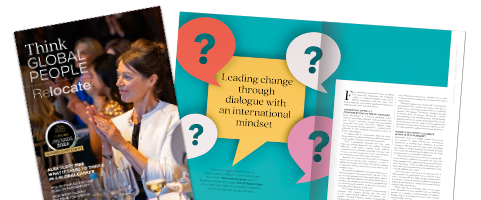
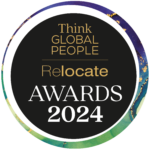
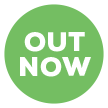 Magazine
Magazine